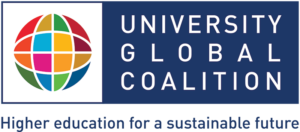Atlanta is singled out every year as having one of the largest wealth gaps in the U.S. This gap is racialized: as of 2017, almost 75% of residents living below the poverty line were Black. Large sustainable development efforts like the Atlanta BeltLine have been exacerbating these inequalities, well before COVID-19. Simultaneously, the region is the birthplace of the Civil Rights Movement, known as a black mecca, and boasts one of the highest concentrations of HEIs (higher educational institutions) in the U.S. – and the most HBCUs (Historically Black Colleges and Universities). In 2017, Atlanta region HEIs banded together with a myriad of partners to launch the UN-affiliated network, RCE Greater Atlanta, promoting a systems approach to sustainable development without displacement. With HEIs as anchors, RCEs – Regional Centres of Expertise on Education for Sustainable Development – support multistakeholder, regional SDG implementation through education and training as part of the Global RCE Network, which includes 174 RCEs worldwide. Presenters representing three very different HEIs; a UNITAR-affiliated center; and a community organization will share perspectives on the values that the RCE network brings to their work, especially around environmental justice. We will showcase a project: The UNITAR Youth and Sustainable Development Goals e-learning program, developed by students from nine HEIs.
Presenters
Jennifer Hirsch, Director, Serve-Learn-Sustain, Georgia Institute of Technology
Na’Taki Osborne Jelks, Assistant Professor, Environmental and Health Sciences, Spelman College
Lolade Owokoniran, Program Manager, CIFAL Atlanta (Kennesaw State University)
